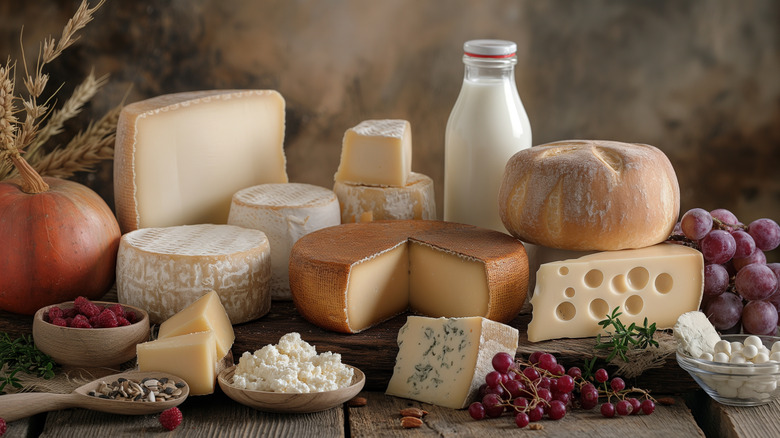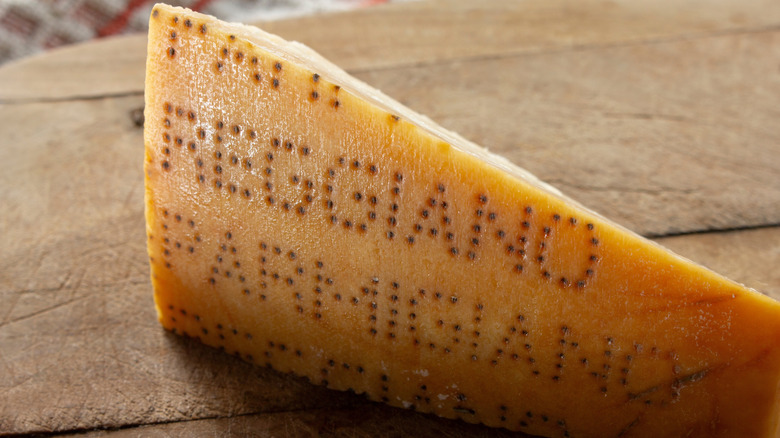The Popular Italian Cheese That's Also Packed With Protein
When you think of cheese's nutritional value, protein might not be at the top of your list. However, Parmesan cheese is an excellent source of protein, giving you just one more reason to add a little extra on top of your meals. Parmesan cheese, particularly Parmigiano Reggiano, has around 10 grams of protein per ounce from the milk used in its production. As the cheese ages, the protein in the milk becomes increasingly dense due to the evaporation of moisture, resulting in a product that's packed with more protein than most other types of cheese.
Given that one ounce of Parmesan isn't all that much, it's easy to incorporate those levels of protein into your diet simply by sprinkling some extra on top of your favorite dishes. Meat-lovers pizza or meat sauce on pasta are already excellent sources of protein, so topping them with the fragrant cheese (or putting parmesan on the pasta before the sauce) is a great way to add more protein to your diet.
Things you might not know about Parmigiano Reggiano
It's no surprise that making cheese can be a lengthy and expensive process, and this shows in the price. A wheel of Parmigiano Reggiano can cost nearly $1,000, making it often more expensive than other varieties. This is a result of not only the manufacturing process, but also the fact that not all Parmesan cheese is real Parmigiano Reggiano. The authentic products must be labeled with a Denominazione di Origine Protetta (D.O.P.) certification, verifying that they came from the proper region of Italy and were made with the appropriate methods.
Although most cheese is suitable for vegetarian (not vegan) diets, authentic Parmigiano Reggiano is not. This is because it's made with rennet, which is generally made from the stomach lining of calves or other young grazing animals. Enzymes in the rennet begin the process of coagulating the milk.
Parmigiano Reggiano is also essentially lactose-free, meaning people who are lactose intolerant should be able to consume it in reasonable quantities because the lactose found in the watery whey of milk is separated from the curds during the production process. Most hard cheeses like Parmigiano Reggiano or Grana Padano can be safely consumed by those who can't digest lactose.

